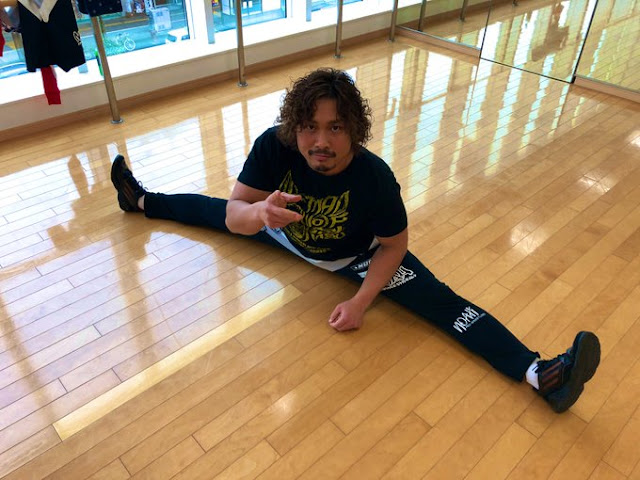(NOAH) Theme of Pro Wrestling Noah: "Passivity"
What it means
"Passivity" is the core of Noah's wrestling. The concept is hard to translate into English, but what it means basically is the art of defending against a move and being able to sell your opponents move, but there are many hidden elements which I will try and explain below. Thanks to the inheritance from Baba, carried through to Noah by Mitsuharu Misawa, Kenta Kobashi, Jun Akiyama and Yoshinari Ogawa, Noah wrestle what is known as either "Kings Road" or "Shitenno Puroresu", which they themselves call "Passivity". This is sometimes mistakenly called "Strong Style" which is the New Japan style, and a different thing all together.
History
- Keiji Mutoh on the differences between New Japan and All Japan
After leaving JWA (Japan Wrestling Alliance) in 1972, Rikidozan's pupils Giant Baba and Antonio Inoki went on to form their own promotions, All Japan and New Japan respectively and with them they took two opposite ends of Rikidozan's training and combined them with their own styles. New Japan would concentrate more on aggression and attack, with All Japan concentrating on how to defend a move and then take a move. Baba once commented that the tapes he was sent from wrestlers wishing to enter All Japan where no good, they told him everything about how well someone could make a move, what he wanted to see was how well they could take a move. Another thing that Baba hated was a wrestler who could not do the basics. Once the basics were mastered, he would then teach "Passivity", which as Kaito Kiyomiya said "is not for everyone". Even now in Noah, the Noah Born will say "Ogawa teaches that you need to know the basics of anything first."
Art form
"Misawa said that Baba taught him that its not the way you run, its also the rhythm, and remembering it is important."
- Naomichi Marufuji ("Heir to The Ark")
"Passivity" is more than just taking or defending a move, as Baba saw it as an art form (I think he would have highly approved of Noah's "Fight with aesthetics" slogan), and he incorporated into it how you should relay the audience what you are suffering, how both you and your opponent should pace yourselves, how to judge your opponent on what move you do next, and how to use timing and even how many steps you should take and how you should defend, how you should take, and how you should fall. "Passivity" therefore is something that requires you to use your head, not just your body, it is a style that tells a story. It is also about endurance, showing how much you can take and always attempting to go beyond what you can't.
"Shitenno Puroresu" and "Passivity"
The endurance part of "Passivity" was made the most famous by the epic wars the Four Pillars (Mitsuharu Misawa, Kenta Kobashi, Toshiaki Kawada and Akira Taue) had in the 1990s, this added to "Passivity" has become a hallmark of Noah style, especially in title defenses. Baba disliked run ins, foul play or submissions, so Noah title matches very rarely contain any of these things, no matter how much the feud has involved other people aside from the champions and the challengers. This misunderstanding of the core of Noah's ethics during the Suzuki-Gun era with the constant intrusions, seconds brawling outside the ring and foul play, had a devastating effect in managing to turn away Noah fans who were used to seeing what Baba would have termed "a pure fight" without any of these elements.
Baba's sound
When Genichiro Tenryu came to Noah, he was struck with how like Baba's All Japan it was, which he credited to Ogawa and Akiyama. He likened it to the way the wrestlers moved, and the all important "sound" that they made. This is a hard thing to convey in writing, so all I can suggest is that when you watch Noah next (and it's best now with the arena being so quiet), you concentrate on the sound they make and you will start to hear it. To Baba, this sound was a sign that someone had mastered the art of "Passivity" and he would not let people debut until they could make it. Baba (who pretty much noticed everything), could even tell who was in the ring just by the noise they made. This was "Baba's sound", and it continues in Noah to this day. All Japan referee, Kyohei Wada, likened all the elements of "Passivity" and being the one in the ring who has to navigate the co-ordination, to being like a conductor in a symphony. Simply put, "Passivity" is music that tells a story that the wrestlers create for the fans to both see and hear.




Comments
Post a Comment
Spam will be deleted immediately